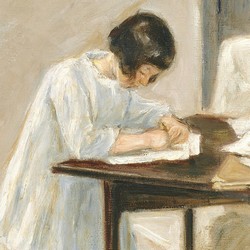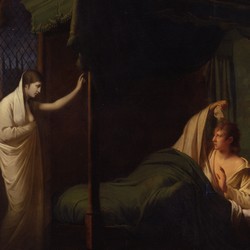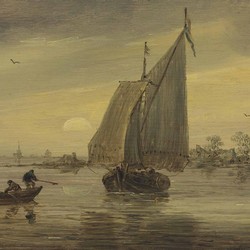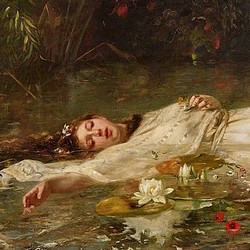- Details

My dearest, as I said last week, I'm on holiday. I hope everything works out and you receive this postcard.
You may be surprised to find here Anton Bruckner; He's not a composer we associate with Art Song, but he wrote a few lieder, about twenty, in addition to the symphonies, masses and motets with which we related him.
- Details

I have my baggage at the doorstep, but I can't go on holiday without writing a few lines to remember Fritz Wunderlich, this week marks 53 years since his death; there are traditions I like to maintain. I've chosen one of Haydn's Scottish songs that the tenor made a record, my favourite: William and Margaret, Hob. XXVI: 153. Or, in the German version that we're listening, Es weiden meine Schafe.
- Details

The rustling of leaves in the wind, the babble of the brook, the crackling of a branch... the forest murmurs are unsettling when we're on alert, but they seem part of an intimate conversation between the forest and us when our mind is at peace and we feel in harmony with our environment; The feeling roughly describes roughly what in German is known as Waldeinsamkeit. Today we're listening to Geheimes Flüstern hier und dort, a Lied by Clara Schumann that tells about this feeling of communion with nature.
- Details

My dearest, September begins. Welcome back if you went on holiday last weeks, be patient if you (still) didn't go, you are not alone. The last notes from the Schubertíada remain in my mind, I enjoyed so much! After the last concert, my friends A. and J. told me: "You should explain in your blog that we had a terrific time at the Schubertíada!" They're right, we had a great time; we let ourselves be dragged into the darkest Lieder, we were happy Stendhal Syndrome victims and our dopamine release was really high. You should try it if you never went to Vilabertran.
- Details

This is the last post about the Schubertíada Vilabertran; For different reasons, I'm really looking forward to the three last song recitals so get ready, we have a lot of music to listen.













